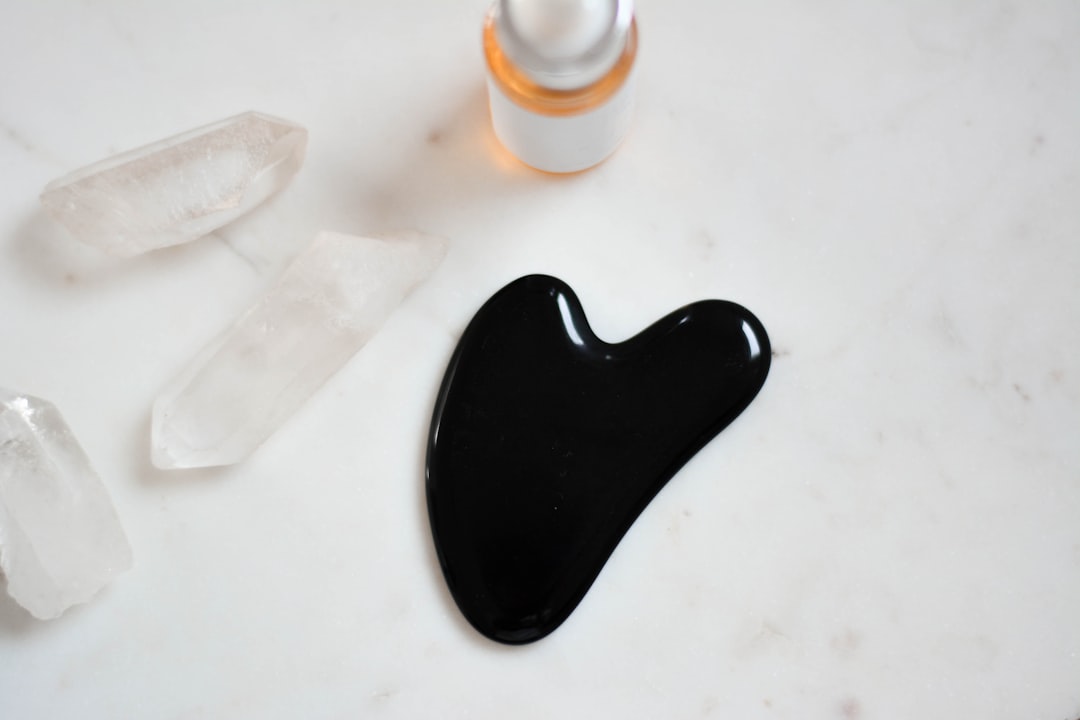Sleep is a fundamental aspect of our overall health and well-being. It is during sleep that our bodies have the opportunity to rest, repair, and rejuvenate. While we often associate sleep with its benefits for our physical and mental health, it is also crucial for the health and appearance of our skin. In this article, we will explore the importance of sleep for skin health and discuss how lack of sleep can negatively impact our skin.
Summary
- Sleep is crucial for maintaining healthy skin.
- Lack of sleep can lead to skin problems such as acne breakouts and premature ageing.
- Sleep plays a vital role in skin repair and regeneration.
- Poor sleep quality can result in dehydrated and less elastic skin.
- Getting enough quality sleep can help reduce inflammation and improve skin’s natural glow.
Understanding the Importance of Sleep for Skin Health
Sleep plays a vital role in maintaining the health and appearance of our skin. During sleep, our bodies go through various processes that promote skin health. One of these processes is the production of collagen, a protein that gives our skin its structure and elasticity. Collagen production increases during sleep, helping to keep our skin firm and supple.
In addition to collagen production, sleep also allows for increased blood flow to the skin. This increased blood flow helps to deliver essential nutrients and oxygen to the skin cells, promoting their health and vitality. Without adequate sleep, this process is disrupted, leading to dull and lackluster skin.
How Lack of Sleep Affects Your Skin
Lack of sleep can have several negative effects on the skin. One of the most noticeable effects is the appearance of dark circles under the eyes. When we don’t get enough sleep, blood vessels under the thin skin around the eyes can dilate, causing a darkened appearance.
Sleep deprivation can also lead to increased inflammation in the body, which can manifest as redness and irritation on the skin. Inflammation can disrupt the skin’s natural barrier function, making it more susceptible to environmental damage and breakouts.
The Role of Sleep in Skin Repair and Regeneration
Sleep is essential for the repair and regeneration of our skin cells. During sleep, our bodies produce higher levels of growth hormone, which stimulates cell turnover and repair. This process helps to heal any damage that may have occurred during the day, such as sun exposure or environmental pollutants.
Sleep also allows for the production of new skin cells, which replace old and damaged cells. This turnover process helps to keep our skin looking fresh and youthful. Without adequate sleep, this process is disrupted, leading to a slower rate of cell turnover and a dull complexion.
The Link Between Sleep and Skin Ageing
Lack of sleep can accelerate the ageing process of the skin. When we don’t get enough sleep, our bodies produce higher levels of the stress hormone cortisol. Elevated cortisol levels can break down collagen and elastin, two proteins that are essential for maintaining the skin’s elasticity and firmness.
In addition to increased cortisol levels, lack of sleep can also lead to increased oxidative stress in the body. Oxidative stress occurs when there is an imbalance between free radicals and antioxidants in the body. This imbalance can lead to premature ageing of the skin, including the appearance of fine lines, wrinkles, and age spots.
How Sleep Deprivation Contributes to Acne Breakouts

Sleep deprivation can contribute to acne breakouts in several ways. One of the main mechanisms is through increased inflammation in the body. When we don’t get enough sleep, our bodies produce higher levels of inflammatory markers, which can trigger acne flare-ups.
Lack of sleep can also disrupt the balance of hormones in the body, including those that regulate oil production in the skin. When oil production is increased, it can clog pores and lead to the formation of acne.
The Connection Between Sleep Quality and Skin Hydration
Sleep quality plays a crucial role in maintaining skin hydration. During sleep, our bodies produce higher levels of a hormone called vasopressin, which helps to regulate water balance in the body. Adequate levels of vasopressin ensure that our skin stays hydrated and plump.
On the other hand, lack of sleep can lead to increased water loss through the skin, resulting in dry and dehydrated skin. This can make the skin appear dull and can also exacerbate the appearance of fine lines and wrinkles.
The Effect of Sleep on Skin’s Elasticity and Firmness
Sleep is essential for maintaining the elasticity and firmness of our skin. During sleep, our bodies produce higher levels of growth hormone, which stimulates the production of collagen and elastin. These proteins are responsible for keeping our skin firm and supple.
In addition to collagen and elastin production, sleep also allows for the repair and regeneration of these proteins. Without adequate sleep, the production and repair of collagen and elastin are disrupted, leading to a loss of elasticity and firmness in the skin.
How Sleep Helps to Reduce Inflammation and Redness on Skin
Sleep plays a crucial role in reducing inflammation and redness on the skin. During sleep, our bodies produce higher levels of anti-inflammatory cytokines, which help to calm inflammation in the body.
Inflammation can manifest as redness and irritation on the skin, particularly in individuals with conditions such as eczema or rosacea. Lack of sleep can exacerbate these conditions by increasing inflammation in the body.
The Relationship Between Sleep and Skin’s Natural Glow
Sleep is essential for maintaining the natural glow of our skin. During sleep, our bodies go through a process called autophagy, which helps to remove dead skin cells and promote cell turnover. This process helps to reveal fresh, radiant skin.
In addition to autophagy, sleep also allows for increased blood flow to the skin, which gives it a healthy, rosy glow. Without adequate sleep, this process is disrupted, leading to a dull complexion.
Tips for Improving Sleep to Achieve Healthy and Radiant Skin
Improving sleep quality is crucial for achieving healthy and radiant skin. Here are some practical tips to help you get a good night’s sleep:
1. Establish a bedtime routine: Create a relaxing routine before bed to signal to your body that it’s time to sleep. This can include activities such as reading, taking a warm bath, or practicing relaxation techniques.
2. Create a sleep-friendly environment: Make sure your bedroom is cool, dark, and quiet. Use blackout curtains or an eye mask to block out any light, and use earplugs or a white noise machine to drown out any noise.
3. Limit exposure to screens before bed: The blue light emitted by electronic devices can interfere with the production of melatonin, a hormone that regulates sleep. Avoid using screens at least an hour before bed.
4. Avoid caffeine and alcohol: Both caffeine and alcohol can disrupt sleep patterns. Avoid consuming these substances close to bedtime.
5. Stick to a consistent sleep schedule: Try to go to bed and wake up at the same time every day, even on weekends. This helps to regulate your body’s internal clock and improve sleep quality.
Sleep is not only important for our physical and mental health but also for the health and appearance of our skin. Lack of sleep can have several negative effects on the skin, including increased inflammation, accelerated ageing, and acne breakouts. On the other hand, getting adequate sleep can promote skin repair and regeneration, improve hydration and elasticity, reduce inflammation and redness, and enhance the skin’s natural glow. By prioritizing good sleep habits and making lifestyle changes that promote healthy sleep, we can achieve healthy and radiant skin.
If you’re interested in taking care of your skin, you might also want to check out this comprehensive beard and skin care guide. It provides valuable tips and advice on how to maintain healthy skin while growing and grooming your beard. From cleansing routines to product recommendations, this article covers everything you need to know for a well-groomed and radiant complexion. Read more
FAQs
What is the impact of sleep on skin health?
Sleep plays a crucial role in maintaining healthy skin. Lack of sleep can lead to various skin problems such as dark circles, fine lines, wrinkles, and dull complexion.
How does sleep affect skin aging?
During sleep, the body produces collagen, a protein that keeps the skin firm and elastic. Lack of sleep can lead to a decrease in collagen production, which can result in premature aging of the skin.
Can lack of sleep cause acne?
Yes, lack of sleep can cause acne. When the body is sleep-deprived, it produces more stress hormones, which can lead to inflammation and breakouts.
How many hours of sleep are recommended for healthy skin?
Experts recommend getting 7-9 hours of sleep per night for optimal skin health.
What are some tips for getting better sleep for better skin health?
Some tips for getting better sleep for better skin health include establishing a regular sleep schedule, avoiding caffeine and alcohol before bedtime, creating a relaxing sleep environment, and avoiding electronic devices before bedtime.




